Anna Kettle's Blog, page 10
May 22, 2020
Recommended Resources

Since sharing my own story about having recurrent miscarriages on this blog, I often get approached for recommendations of helpful resources to support others experiencing miscarriage and infertility, and trying to grapple with their disappointment and grief.
So I’ve decided to compile a short (not exhaustive) list below of some of the sources of advice and encouragement that I’ve personally used and found helpful. Some of them are faith-based, but not all of them are.
Podcasts
Life after Miscarriage - Shelly Mettling
Even If Podcast - Kelly Streiff
Sisters in Loss - Erica M McAfee
Sarah’s Laughter Infertility Podcast
Books
Zoe Clarke-Coates - The Baby Loss Guide
Adriel Booker - Grace Like Scarlett: Grieving With Hope After Miscarriage & Loss
Melanie Dale - It’s Not Fair: Learning to Love the Life You Didn’t Choose
Sara Hagerty - Every Bitter Thing is Sweet: Tasting the Goodness in God in All Things
Philip Yancey - Where is God When It Hurts?
Pete Greig - God on Mute: Engaging the Silence of Unanswered Prayers
Timothy Keller - Walking with God Through Pain & Suffering
K. J. Ramsey - This Too Shall Last: Finding Grave When. Suffering Lingers
C. S. Lewis - A Grief Observed
Other Resources
Online Christian Communities
Devotionals
Kathe Wunnenberg - Grieving the Child I Never Knew
Rachel George - Grieve, Create, Believe: Process Your Loss with Intention and Truth
Other
www.miscarriageassociation.org.uk
You can sign up here to receive my latest blogs straight to your email inbox
Email Address
Sign Up
We respect your privacy.
Thank you for subscribing!
April 24, 2020
Mythbusting secondary infertility
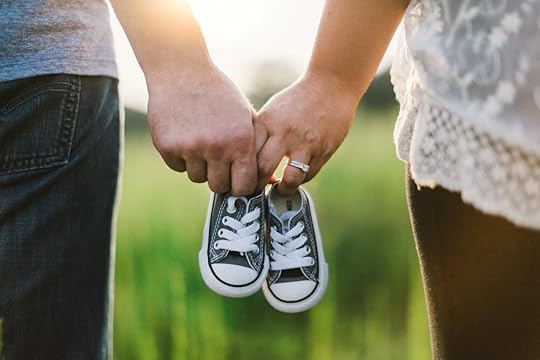
Busting four common myths for #NIAW
As many of you who have been reading my blog for any length of time will be aware, I have secondary infertility characterised by recurrent miscarriages.
So I though that during National Infertility Awareness Week 2020 (19 - 25 April) it might be helpful to bust a few of the common myths that I often hear about the condition…
1. You can’t be infertile because you already have a child.This is the tricky thing about secondary infertility; on paper your body can do it, but in practice it’s a different story. The fact is that fertility isn’t static, the body changes all the time. And what my body did at age 34 (ie. carried a full term pregnancy) it has failed to do again at the ages of 37, 38 or 39.
2. At least you can get pregnant.That’s true, but since having a healthy baby (and not just getting pregnant) is the end game for any couple trying to conceive, that doesn’t help us much. The fact is recurrent miscarriage is far less understood medically than other forms of infertility, and far less treatable too, than many other forms of infertility that can be supported through IVF.
People often ask me why we haven’t tried IVF after two and a half years, but IVF is simply not a fix for all forms of infertility. It can hugely improves conception chances in couples that are unable to do so naturally, but it can’t reduce the risk of miscarriage unless egg or sperm quality is known to be the cause. Our issue is around the internal embedding process.
3. Secondary infertility isn’t as serious or prolonged as other forms of infertility.As someone who has been trying to conceive a second child since September 2017, I beg to differ. In fact, unlike other forms of infertility where it’s recommended to begin to access tests and treatment after 12 months of trying to conceive (or 6 months if you’re over 35 like me), there’s no real end point at all to recurrent miscarriage, since there is no known fix or cure.
Either you just keep rolling the dice each time you get pregnant (sometimes after enough failed pregnancies you can lucky), or you eventually decide that you've had enough of loss and it’s time to quit.
4. At least you have one child.That’s also true, and whilst I am very grateful for that fact because some women never get that opportunity at all, I have also lost three more pregnancies since then whilst watching other friends go onto have the families that they planned.
In the end, it doesn’t matter what form your infertility takes, the experience of endless waiting, disappointment, and the sense of unfairness is just the same. I can’t have the family that I had planned either, and unlike many couples who are going through IVF treatment which routinely allows a number of healthy eggs to be frozen and stored for use in later cycles, there are no treatment options that will enable me to eventually grow the family that I want over time.
You can find out more about National Infertility Awareness Week 2020 here.
Read more
Subscribe to Notes On Life
You can sign up here to receive all of my blog straight to your email inbox.
Email Address
Sign Up
We respect your privacy.
Thank you!
April 14, 2020
Ageing well
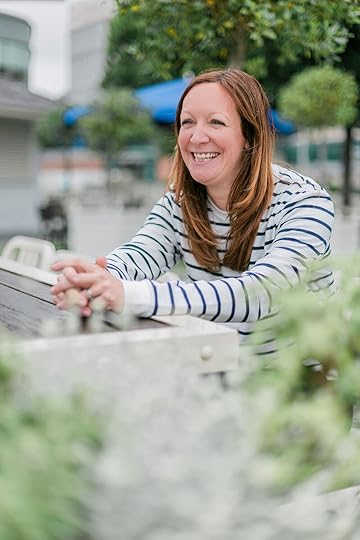
The ageing process
It feels like I’ve aged about a decade in the last few years of my life, since becoming a parent...
My hair is greyer, my thigh gap smaller, my muffin top bigger, and my face lines deeper. I sag in places that I never used to, and my stomach abs have all but been replaced by over-hang and a c-section scar. And at the age of 39 (40 this week!) I just can’t help looking in the mirror and wondering where the slimmer, sexier, more youthful version of me has gone.
The ageing process (or ‘aging’ if you’re an American reader!) can be tough on the body, but it’s tough on the ego and purse-strings too. Why is it that everything around us seems to encourage women to resist the natural ageing process with hair dyes and lotions and potions and fillers and creams anyway?
We are the generation that came up with the internet, the cure for HIV/AIDs, smart phones, and electric cars. So surely we are advanced enough as a society to realise that beauty is more than skin deep?
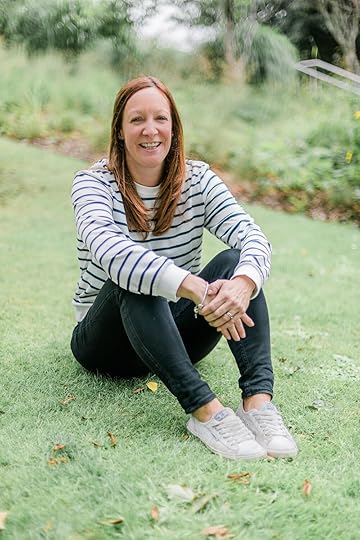
Women and ‘age shame’
The sad fact is that society puts an awful lot of pressure on women to conform to its beauty ideals at every life stage.
Incredibly, a recent global study by Dove, the beauty products manufacturer, surveyed women from thirteen highly developed countries, and found that more than 50 percent were self-conscious about their appearance.
Many respondents also openly admitted that they regularly opted out of important life events because they didn’t like the way they looked.
I find it incredibly sad that women feel so pressured to conform to society’s self-made ideas about what beauty is, that they are actually choosing not to show up for their own lives!
I find it incredibly sad that women feel so pressured to conform to society’s self-made ideas about what beauty is, that they are actually choosing not to show up for their own lives! Don’t you?
Of course, I’m not saying that body image issues only affect women because clearly that’s not true. But I think there’s a particular type of shame that’s reserved for women when it comes to reaching middle age.
Just look at the huge rise in treatments like botox, fillers, and other non-surgical procedures aimed at reversing the ageing process as another case in point too.
Research by global market-research agency Mintel (2018), found that over half (51%) of women aged 16-29 would consider getting cosmetic enhancements either now or in the future. And that whilst previously these treatments would not have been considered until into the 40s', now over a quarter of 18-24 year olds (28%), and almost a third (31%) of 25-34 year olds, have already had some form of cosmetic treatment to stave off signs of growing older.
Is it just me, or are these some rather alarming statistics?
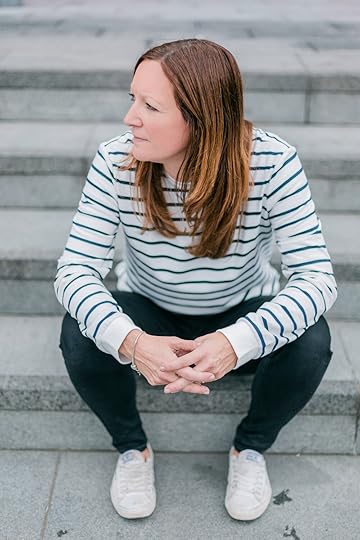
Where does ‘age shame’ come from?
Where does all this body shame and shame about ageing even come from? And how is it that women over 40 are generally thought of as past their best, whilst so many men become ‘silver foxes’ and seem to comfortably grow into their older years much more comfortably?
I think these are questions worth taking some time to ponder. And, having done that, I have a couple of different theories…
Firstly, it’s an issue that’s driven by marketing. Did you know that in 2018, the global anti-aging market was estimated to be worth about 50.2 billion U.S. dollars? So there’s an awful lot of money to be made out of making people feel bad about growing older.
Every year huge amounts of advertising power is invested into persuading us that the signs of ageing are a negative thing, and if a message is said loudly enough and often enough, it begins to embed itself into our social psyche.
But whilst that might go part of the way in explaining the issues, it doesn’t explain why women are especially susceptible…
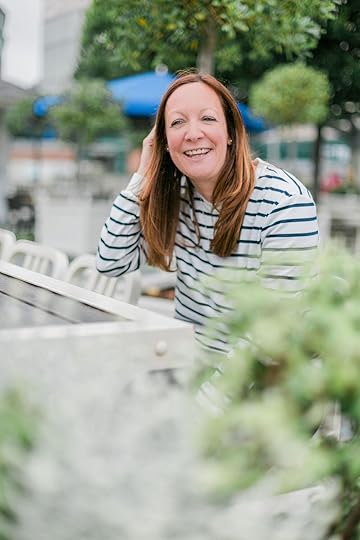
A closer look at shame
Renowned author and researcher on the subject of shame, Brené Brown has argued that the difference between men and women is that men tend to feel guilt, whilst women tend to feel shame.
Do you know the difference between guilt and shame? In essence, guilt is feeling that you did something wrong, but shame is feeling that who you are is wrong. Brown’s book ‘Women & Shame’ is a great read if you’re interested in learning more about this subject. But my real point here is that although shame is kind of subtle and tricky to define; you can see it’s effects everywhere.
It’s kind of hard to imagine a world without shame, isn’t it? A world where every person is confident in their own skin, where people do not compete or compare themselves to others, or strive to meet someone else’s (or their own) unrealistic expectations…
But according to the Book of Genesis at the start of the Bible, there was a time when this sense of shame did not exist in humanity. We are told that in the very beginning, Adam and Eve knew exactly who they were. They didn’t wrestle with questions of image or identity, or equality or value. Their sense of self-worth was deeply rooted, as they enjoyed a perfect relationship with God and with each other. There was no barrier between them, no reason to hide.
Yet they were tempted to eat the forbidden fruit by a serpent, and in an instant everything changed. Suddenly there was this voice casting doubt on God’s character, and their relationship with God and with each other was marred by the shadows of shame.
“And he said, “Who told you you were naked? Have you eaten from the tree that I commanded you not to eat from?" The man said, “The woman you put me here with - she gave me some fruit from the tree and I ate it.” (Genesis 3:11-12)
In the place of perfect togetherness, harmony, and acceptance, suddenly there is blame-shifting, accusation, competition, and a sense of being at odds with one another, as the man attempts to lay his own shame onto the woman.
And sadly it’s a pattern that’s continued to repeat throughout history, in a million different ways ever since.
Here’s just a few examples…You can see it played out in the systemic rape of women and children used as a form of combat in war zones across the world.
Or in numerous regimes which still don’t routinely allow little girls to study or learn like boys.
Or in atrocities like female genital mutilation which still routinely happens in our own nation, as well as in far off shores, despite being illegal.
Or in cultures where women and girls are required to cover their faces in public, or to walk behind a male.
Or in nations where women are routinely prosecuted for being raped by a male.
Or in workplaces where women are still routinely earn less than men for doing exactly the same role.
And you can see it in the small, everyday quarrels and power struggles taking place between a husband and wife too.
Call me a feminist if you like, but it seems to be that a key consequence of sin is that women have systematically suffered and been held back by their gender ever since the original fall.
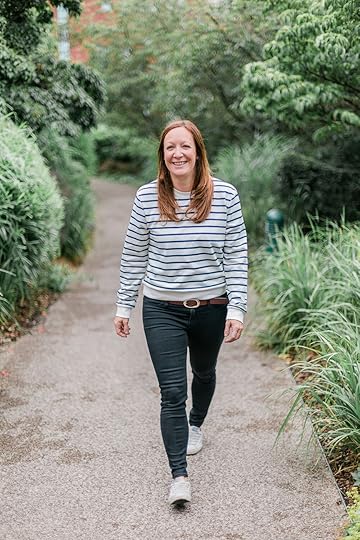
Discovering true identity
But the Bible also repeatedly reminds us that as sons and daughters of God, shame is not our true identity. Below are several of my favourite passages on this subject:
Psalm 139: 14 contains a beautiful reminder that every single one of us is ‘fearfully and wonderfully made’ by God. In fact, the whole chapter describes how we have been lovingly created by God. We are all living, breathing miracles, with no detail about us is left to chance or mistake.
1 Samuel 16: 7 says, “Truly, God does not see what humans see, for humans look at the outward appearance, but the LORD sees the heart” highlighting how God doesn’t see us the way we so often look at ourselves, or at each other. His is not a shallow, external perspective.
And when Proverbs 31 describes the true hallmarks of a woman of God, it says this: “Strength and dignity are her clothing, and she laughs without fear of the future.”
Oh, that each of us could know what it is to really live in the freedom of those truths, and quit fearing our own future as we grow older.
Oh, that each of us could know what it is to really live in the freedom of those truths, and quit fearing our own future as we grow older.
Because it’s what’s developing on the inside and not the outside of a person that matters the most as the years pass by.
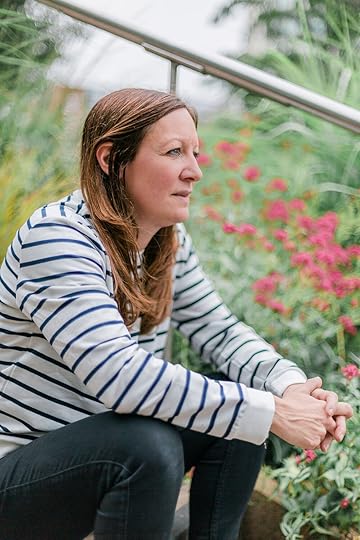
My own response
With all of this in mind, approaching 40 feels like a sort of watershed moment for me. Because I don’t want to buy into the lie that external appearance is the most defining feature of a person, or that ageing is something to despise.
And so what if I have a few more grey hairs, and a few extra lines on my face? I don’t want my life, my time, my money, my thoughts, to become too consumed with these worries and concerns…
Of course I want to age well by looking after myself and by staying healthy in lots of practical ways. I want to steward this body that God has given me well, and to live well for as long as I can, by honouring it and not taking it for granted. That’s why I exercise (even though I hate it!) and try to nourish my body with a (reasonably!) well balanced diet that’s good for me.
I want to grow older gracefully, to celebrate a life that’s well-lived, and to approach the ageing process without any sense of shame, or feelings that my best years might be over.
I also want to grow older gracefully, to celebrate a life that’s well-lived, and to approach the ageing process without any sense of shame, or feelings that my best years might be over.
If I am lucky enough to live to the average life expectancy for women in the UK (which is currently 82.9 years), then I am still just under the halfway point. And I so want to use the ageing process as a catalyst to help me focus in better on those things that matter to most, and live with increasing intentionality.
But most of all, I want my inner beauty, my character, and my spirituality to increasingly flourish as the years move on, even as my physical body grows older.
Read more by author
April 7, 2020
On turning 40

I’m turning 40 next week
It seems almost surreal to say that out loud! Because firstly, how can I be 40?! My 30th still feels like it was just yesterday...
But also, even though 40 has been looming overhead for some time now, (ever since I turned 39 to be honest!) the final run up to the big day has been so overshadowed by the current coronavirus pandemic, that it hardly feels like it’s happening at all...
Honestly, if you’d asked me a few months ago, an understated 40th might have been the exact kind of birthday I would have chosen. I wanted it to slide past quietly, and without any fuss...
I just didn’t want to acknowledge that it was really happening to me at all.
And it wasn’t so much the number itself that I was bothered by, or even the idea of getting older. I have always been fairly comfortable in my own skin. And 40 really isn’t that old…
No, my main issue with turning 40 was what it represents for most women; and that is a closing window of fertility for most women.
Fertility at 40You see, when I first got pregnant with our first son at 34, I always thought my trying to conceive and child bearing years would be well behind me by the end of my 30s…
I never even imagined that we would find ourselves where we are now.
I didn’t expect that recurrent miscarriage would become a part of my story, especially after my first pregnancy seemed to progress so easily.
And I definitely didn’t expect to be facing my fourtieth year still trying to conceive a child. I never expected (or wanted) to be an older mum…
But alas, a miscarriage at 37, 38 and 39 means that here I am, still hoping for another child, but facing ever decreasing odds with the advent of a new decade…
This is why I feel uncomfortable with turning 40. Life simply has not taken me where I’d hoped to be right now.
Making peace with 40But nonetheless, I gradually came around to the fact that really my 40th birthday is just another day. My fertility isn’t just going to fall off a cliff edge in an instant; it’s a much more nuanced and gradual thing.
Our situation is what it is right now. And when it comes to our family planning, I just have to trust that what will be, will be. No amount of worrying about my age will change anything at all…
But perhaps what’s most annoying of all about this current situation, is that I had really made peace with turning 40 in these last months. I had decided that in spite of the disappointments and setbacks, I would embrace this landmark birthday in spite of it all.
We may not have our much hoped for rainbow child, but our lives are still full in so many other ways.
We may not have our much hoped for rainbow child, but our lives are still full in so many other ways. And the life we have been given is really worth being thankful for.
Eventually my husband, who is also 40 just six days after me (I will never hear the end of it in that week!) persuaded me around to the fact that this was a great excuse to throw a joint birthday bash and get all our friends and family together for a party.
So we began to make plans to put the fun into turning 40; a week off with extended family over Easter, followed by hiring out a local bar to have a big party, ordering decorations and inviting friends to DJ (because what is a party unless there is dancing?!), and also planning a childfree weekend getaway for just the two of us too…
And yet, obviously with the events of recent weeks, all of those plans have been put on hold. So now, as it turns out, 40 is just another day after all… we will probably celebrate by ordering takeaway, opening a bottle of fizz, and stay in!
Letting go of controlLife is funny like that sometimes, isn’t it? Whether its about fertility and family planning, cancelled plans due to COVID19, or something else, life often requires a large degree of flexibility from us.
There’s this proverb which I love that so eloquently puts it like this: “We can make our plans, but the LORD determines our steps.” (Proverbs 16:9)
And right now, I am struck by just how true this is.
Turning 40 is just another lesson in letting go of what I can’t control and learning to pivot and to make the best of what is.
It’s absolutely fine to make plans for the future and to build our ideal timeline around them too, just so long as we hold those plans lightly, write them in pencil, prepare to pivot if we need to, and remain open to the possibility of change.
So the questions that I am asking myself right now, as I look towards my 40th year are these:
Will I trust God, the author of my life, to write the very best story with my life?
Will I trust Him with those unexpected changes and edits?
And will I continue to believe that His version of my story will be the very best one, much better than any version I could try to ghost write for myself?
Read more by author



